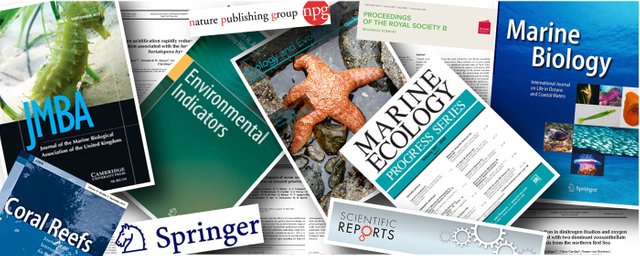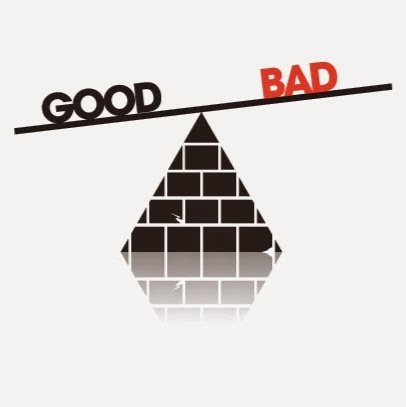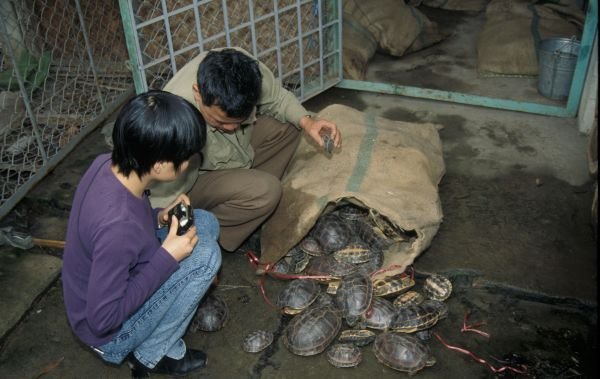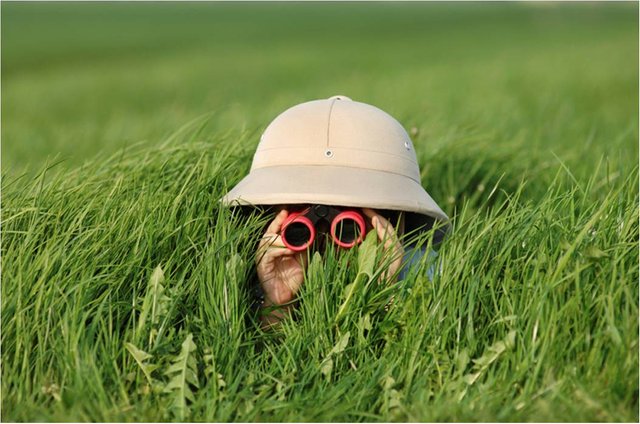The Risks of Unrestricted Science Publication and Endangered Species
Thanks to modern technology, we live in a world where scientific research is openly available and easily accessible. This is a fantastic thing for many reasons: it encourages and enhances collaboration among scientists and drives new discoveries, while also allowing the general public to keep up to date on scientific projects and advancements. Health studies, climate change models, conservation initiatives; these publications are all crucial to understand and protect our world, our resources and ourselves. But while publishing scientific information has been a tradition for centuries, these same modern technological advancements may be creating new obstacles. Some scientists must now wonder, "do we publicize TOO much information?"

In today's world, information is incredibly valuable. We crave openness and transparency; when information is hidden or unavailable to us, we become very distrustful. So how could the sharing of scientific information possibly be bad? Why would we even consider limiting what we openly publish? Well the problem isn't the information itself, but how it's wielded by those who can freely read it. Most of the time, this information is used for "good", such as the collaboration among other research groups or even just the general dissemination of important conclusions to the global population. But the problem is when someone wields the information more like a weapon; these individuals have learned to use scientific publications to their own ends and allowing them continued unrestricted access to scientific information can be devastating.

Unfortunately, thanks to open publication, biologists may be contributing to the global decline and even extinction of many different species. To poachers, these unrestricted publications are a literal gold mine; these individuals are now scouring scientific documentation for information on the locations or habitats of new or rare species.
Ironically, the principles of open access and transparency have led to the creation of detailed online databases that pose a very real threat to endangered species. Source
The illegal trade of endangered wildlife has exploded online, threatening many wild populations or even completely wiping them out. Even some recently described species are already on the brink thanks to poaching occuring almost immediately after they were first documented and published. Online publications, like wildlife atlases and range maps, are basically a treasure map; at the "x" lies an animal potentially worth a fortune.
"We have personally experienced this, in our research on the endangered pink-tailed worm-lizard, a startling creature that resembles a snake. Biologists working in New South Wales are required to provide location data on all species they discover during scientific surveys to an online wildlife atlas. But after we published our data, the landowners with whom we worked began to find trespassers on their properties. The interlopers had scoured online wildlife atlases. As well as putting animals at risk, this undermines vital long-term relationships between researchers and landowners." -Benjamin Scheele, Postdoctoral Research Fellow in Ecology, Australian National University Source

Sadly, poaching isn't the only problem that has increased with the availability of unrestricted information. Over-eager wildlife enthusiasts scour these same information sources to track down unusual species to photograph, handle or even collect. This has several profoundly negative impacts on local populations; first off, it is incredibly disruptive and stressful to the animals (some animals can die due to even minimal stress). The individual can destroy critical microhabitats in their search that could have severe effects in the entire ecosystem. They may even be responsible for the spread of cataclysmic diseases; the amphibian chytrid fungus is spreading rapidly thanks to the wildlife trade and handling, and many species have already been driven to extinction.

Some scientists believe it may be time to break with tradition, and begin censoring some of the information they reveal to the public. But how do we responsibly do this? How do we provide open scientific literature while still protecting these animals? How do we maintain our transparency without giving away information that can be harmful in the wrong hands?
We argue that before publishing, scientists must ask themselves: will this information aid or harm conservation efforts? Is this species particularly vulnerable to disruption? Is it slow-growing and long-lived? Is it likely to be poached? Source
Biologists are beginning to take lessons from other scientific fields. Paleontologists and anthropologists, for example, are careful not to disclose locations when publishing data; fossil and artifact excavation sites are kept secret to prevent illegal collection or looting. But simply withholding the habitat or location of a species may not be beneficial to the animal in question, and may even run counter to protecting these species. Conservation efforts require that we know where about animals live so we can adequately protect them and their ecosystem. If a new, endangered lizard were found somewhere in South America, how would we begin protecting it if the location or habitat was completely unknown? How do we allow the dissemination of information without letting it fall into the wrong hands?
Legal or academic requirements to publish location data may be dangerously out of step with real-life risks. Source

As it stands, there isn't a satisfactory conclusion to this debate. Some newer publications have begun witholding information such as species ranges and habitats, but there is the risk that conservation initiatives may be hindered. So I will ask you steemit: what do we do now? Do we continue with complete transparency or do we censor critical information? How do we spread important information to those who need it without sacrificing security? These are not easy questions to answer, but our changing world may require adopting new strategies to protect our natural resources.
Article Link: https://theconversation.com/

I know that in Africa (and possibly South America), programs have been established that employed indigenous people in conservation programs. In some cases, the people who had actually been involved in the poaching, became (for lack of a better term) Park Rangers.
I also believe that those involved in the actual poaching, rarely are the ones who profit the most.
They do it to survive, day to day.
Offering them another income, besides poaching, was more than enough to bring the problem under control.
Not only that, there's a pretty fierce instinct for people to want to protect where they live. (In most people anyway.)
Isn't that a problem generally in science? And its not only the question if the public should know about new discoveries, but the question if certain knowledge is harmful by nature.
Its a dilemma in which scientists can easily get trapped. As a scientist you seek knowledge, thats the purpose of science. But knowledge can be benefitial or dangerous, or even both at the same time. I think selected secrecy (telling A and B but not C) is not a real solution. It may delay a problem, but not prevent it.
In the case of new species for example, it might be best not to tell anybody if you found one. But then you are no scientist anymore. A catch 22 situation...
I agree. I also think it is the duty of scientists to share what they have discovered, otherwise what is the point? But you are right, certain knowledge is harmful by nature and withholding tidbits of information here or there doesn't really solve anything. We need to figure out ways to share learned information, while also protecting the source and object of study. It's definitely a dilemma.
Well, what we really need is, to learn to act responsible - even if that means not to pursue any further if we recognised the danger. You know, certain things... like genetic manipulation, or AI... may be we would be better off not having them. But they can be benefitial. too.
Also, often scientists have this attitude that they only do their job, and if their discoveries are misused later, its not their fault. Which is not totally unreasonable. Yet, it has brought us the nuclear weapons. Oh well...
Yes, I agree we need to double down on our responsibility but it's definitely a tricky subject. I don't think it means we need to stop our pursuit of knowledge. How can we make things safer or improve upon what we know without forward progress? We may not be able to perceive the dangers until we are in the thick of it. That's just how science and progress work. Virtually everything we study is going to have its share of dangers and setbacks, we just need to be prepared to meet them head on and ensure public safety and wellbeing. There are going to, unfortunately, be costs to reap the rewards (I know that sounds rather callous).
I do agree on your second point. How can you hold one man responsible for the actions of another? If you invented an ax as a tool to chop wood, is it your fault if your neighbor uses the ax to murder someone? In this instance, can you really blame the scientists for inadvertently providing the information to poachers? I feel for those scientists out there who have contributed work that was taken and corrupted by greedy individuals to their own ends. But now we have to ask: how do we prevent this from happening over and over again?
I'm really liking the comments I'm getting on this article! Thanks for commenting again!
You're welcome, I also enjoy a good conversation about such things. Elsewhere I dont have the chance to do that very often - and also, thats what we are here for, isn't it. :)
Yeah, how do we stop making the same mistakes again and again, thats a good question. I'm afraid, we won't. Like, we know how bad war is, and yet we do it again and again. May be we are hopeless.
Censorship of information is not the answer to this issue.
I 100% agree; scientific data should be completely available to the public. Transparency is just an all around a good practice, but more importantly, conservation efforts rely on collaborative range maps (I am a coordinator for FrogWatch USA and I contribute to these range maps). But that does beg the question: how do we make sure this information isn't used irresponsibly? An entire species could be wiped out because of what information is made available; how do we make sure that doesn't happen?
These are great questions, and unfortunately I don't have any good answers for them.
Shit, this is serious!
I've always underestimated poachers as grunts that could barely read. There's one potential option to this: add false locations as decoys.
Actually, you could argue that one would have to be pretty smart to find these animals and circumnavigate national and international law.
That's an interesting proposal but falsifying scientific records isn't a great idea. Perhaps even worse than censoring information. People are already often distrustful of science and false records would definitely only make things worse. It would also make identifying endangered species more difficult; if you falsely listed a critically endangered species in more areas than it inhabits, you risk that species going unprotected because it is believed to be thriving.
It's a tricky subject to be sure!
The question here seems to make the assumption that these newly-discovered and already endangered species need to be saved/protected. And it almost assumes that the fact that they're endangered is somehow the fault of humans or that it is our responsibility to save/protect them. I don't think that searching the world for rare species and then trying to save them from extinction is productive for science/scientists. As this post points out, it can actually expedite the extinction by creating a lucrative black market for the species in question.
Other than that, I found this post to be quite informative and raises some very good points about publishing. Don't mind my picking of nits.
Well, many of the newly discovered species are already at risk, and some are practically on the brink of extinction when we find them. Sure, perhaps not all are a direct result of humans, but many can be positively linked back to human activity as a cause. So it's beneficial to know what the major causes for their decline are; if humans ARE responsible for their decline perhaps it is our responsibility to save/protect them, but I admit that is my own personal opinion. Even if were are not to blame for their decline, preventing poaching at least minimizes the pressures they face (and also puts additional pressure on the illegal trade). Yes, here I did make an assumption, it was just an example to demonstrate the point.
I agree, just scouring the world for animals then trying to save individual species isn't entirely productive. But we study these endangered species to understand the causes behind their decline and see the bigger picture. By studying the species at risk, their ecosystems, and how they are impacted by human activity, it gives us an idea of what actions to take to begin conserving ALL of our natural resources.
Thanks for the comment!
To be great in life you have to follow the best, that's why I follow you, follow me and we help each other